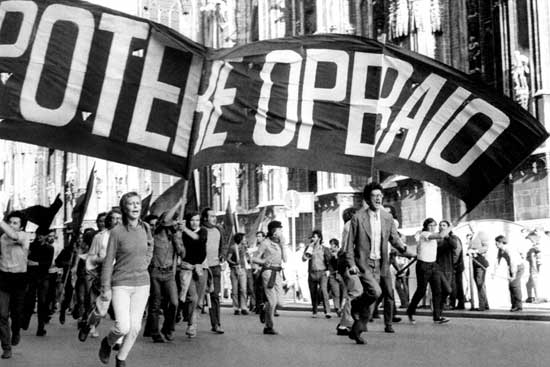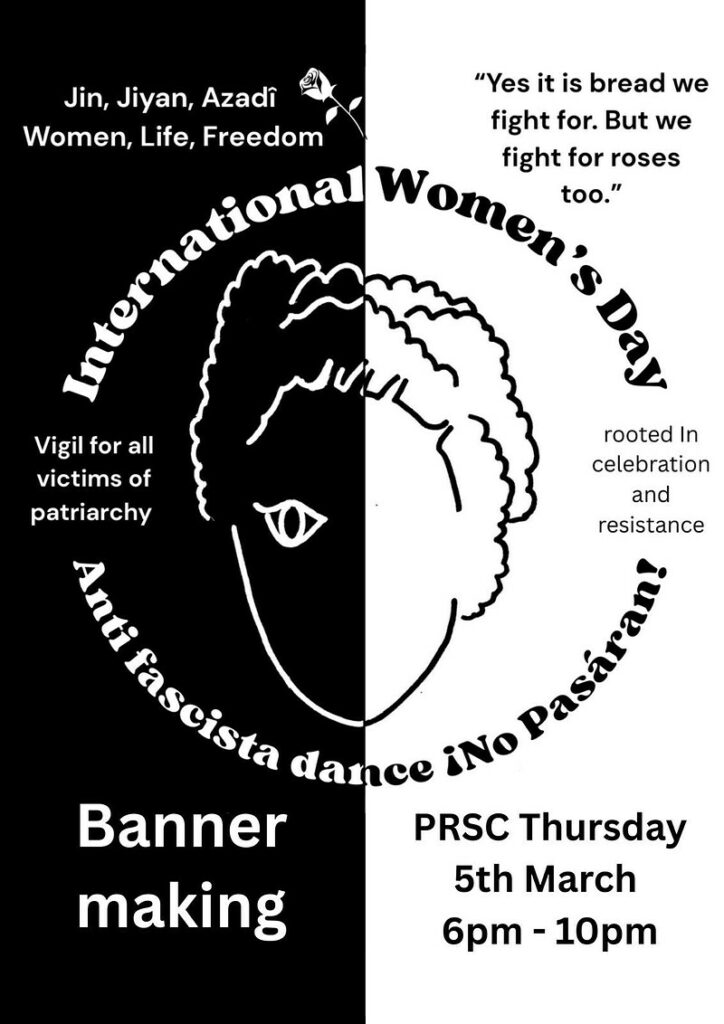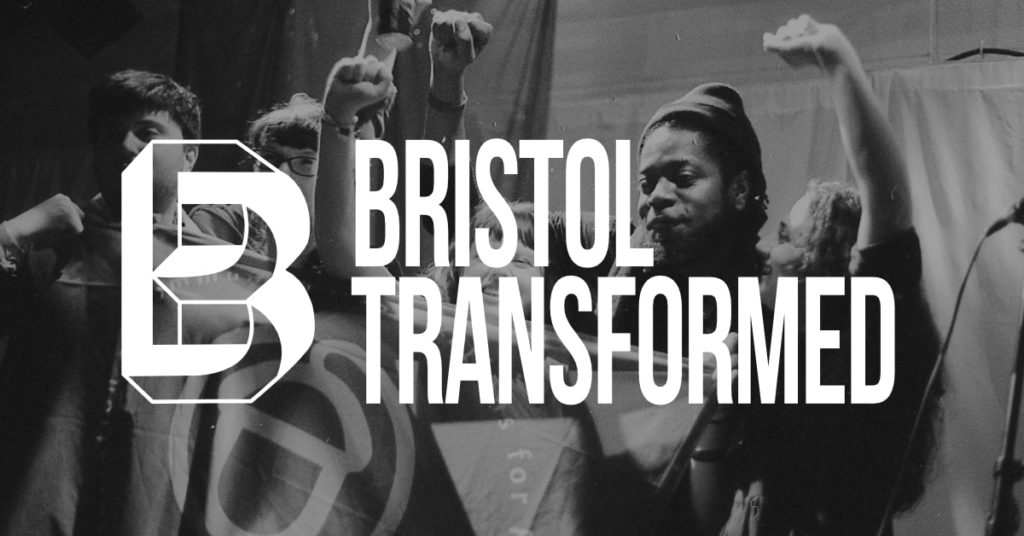
- This event has passed.
A meeting of AngryWorkers: For workers’ autonomy!
Saturday 5 March, 2022 @ 11:00 - 17:00
Free entry

We hope to start a local group in Bristol. Join us if you’re interested in building some roots – with a bit of strategy behind it! We have to rediscover what it means to be a militant, a comrade, a collective…
The strategy bit
We need to get our heads around where we’re at, why working class struggles in the past were successful or defeated, what unites and divides us. Given the global nature of the system we live in, this can seem like a heavy and overwhelming task. So we want to start collective reading and discussion meetings. Initially we will focus on the lessons of the last major cycle of struggles in the 1960s and 1970s and open the debate from there. These struggles taught us to question the role of the official parties, the gendered division of labour, the role of the unions and so-called experts. Here is an initial text which describes our starting point, but we will make this clearer when we meet.
Why work?
Work is the life-blood of the system, the bosses’ and state’s source of power, the basis for our own potential power and the emancipation of human relationships. Work is dispersed in warehouses, backyard kitchens, university offices, in the home. It is the battlefield of social change, where our energy and creativity is either used against us or liberated in order to create a better life. Some of us have started working and organising in one of Bristol’s biggest workplaces. We will share our experiences so far and want to hear where you’re working or perhaps planning to work. We will talk about plans to focus on particular workplaces, where we already have international contacts, for example at Amazon. We will discuss concrete steps to create a solidarity network in the proximity of these workplaces, addressing conflicts with landlords, the migration regime, the job centre.
International solidarity
But we can’t afford to just act locally when time and time again, we’ve seen how our struggles can be undermined – by outsourcing, repression, the law. We can overcome this by looking at what other workers are doing abroad and building practical links between workers from the same company or supply chain across national borders. We’ll talk about recent opportunities for this. Being part of the AngryWorkers network gets us in touch with comrades around the globe – we’ve met wonderful people from Sao Paolo, Chicago, Poznan, Madrid, Delhi… and hope to host an international gathering again soon.
Workers’ inquiry and getting our own communications going
The experiences of our class are stratified. Some of us are unemployed or pushed from one job to another. Some of us work in big workplaces doing manual work, and have little access to the world of science or intellectual labour that is going on in offices or on campus. We have to understand the specific conditions to find specific ways of organising ourselves. A cookie-cutter organising model doesn’t work! At the same time we have to break down barriers between the factory, university, hospital, nurseries and the domestic work we have to do at home in order to understand and change society as a whole. A local newspaper can help bridge these gaps between different segments of our class and movements, as well as get a more grassroots flavour of what actually is happening in our workplaces and communities, the good and the bad. We don’t have an organisation to defend, this would be a space for honest, (but hopeful) assessment.
If all this sounds like something you want to get involved in, come along to find out more!
The strategy bit
We need to get our heads around where we’re at, why working class struggles in the past were successful or defeated, what unites and divides us. Given the global nature of the system we live in, this can seem like a heavy and overwhelming task. So we want to start collective reading and discussion meetings. Initially we will focus on the lessons of the last major cycle of struggles in the 1960s and 1970s and open the debate from there. These struggles taught us to question the role of the official parties, the gendered division of labour, the role of the unions and so-called experts. Here is an initial text which describes our starting point, but we will make this clearer when we meet.
Why work?
Work is the life-blood of the system, the bosses’ and state’s source of power, the basis for our own potential power and the emancipation of human relationships. Work is dispersed in warehouses, backyard kitchens, university offices, in the home. It is the battlefield of social change, where our energy and creativity is either used against us or liberated in order to create a better life. Some of us have started working and organising in one of Bristol’s biggest workplaces. We will share our experiences so far and want to hear where you’re working or perhaps planning to work. We will talk about plans to focus on particular workplaces, where we already have international contacts, for example at Amazon. We will discuss concrete steps to create a solidarity network in the proximity of these workplaces, addressing conflicts with landlords, the migration regime, the job centre.
International solidarity
But we can’t afford to just act locally when time and time again, we’ve seen how our struggles can be undermined – by outsourcing, repression, the law. We can overcome this by looking at what other workers are doing abroad and building practical links between workers from the same company or supply chain across national borders. We’ll talk about recent opportunities for this. Being part of the AngryWorkers network gets us in touch with comrades around the globe – we’ve met wonderful people from Sao Paolo, Chicago, Poznan, Madrid, Delhi… and hope to host an international gathering again soon.
Workers’ inquiry and getting our own communications going
The experiences of our class are stratified. Some of us are unemployed or pushed from one job to another. Some of us work in big workplaces doing manual work, and have little access to the world of science or intellectual labour that is going on in offices or on campus. We have to understand the specific conditions to find specific ways of organising ourselves. A cookie-cutter organising model doesn’t work! At the same time we have to break down barriers between the factory, university, hospital, nurseries and the domestic work we have to do at home in order to understand and change society as a whole. A local newspaper can help bridge these gaps between different segments of our class and movements, as well as get a more grassroots flavour of what actually is happening in our workplaces and communities, the good and the bad. We don’t have an organisation to defend, this would be a space for honest, (but hopeful) assessment.
If all this sounds like something you want to get involved in, come along to find out more!


